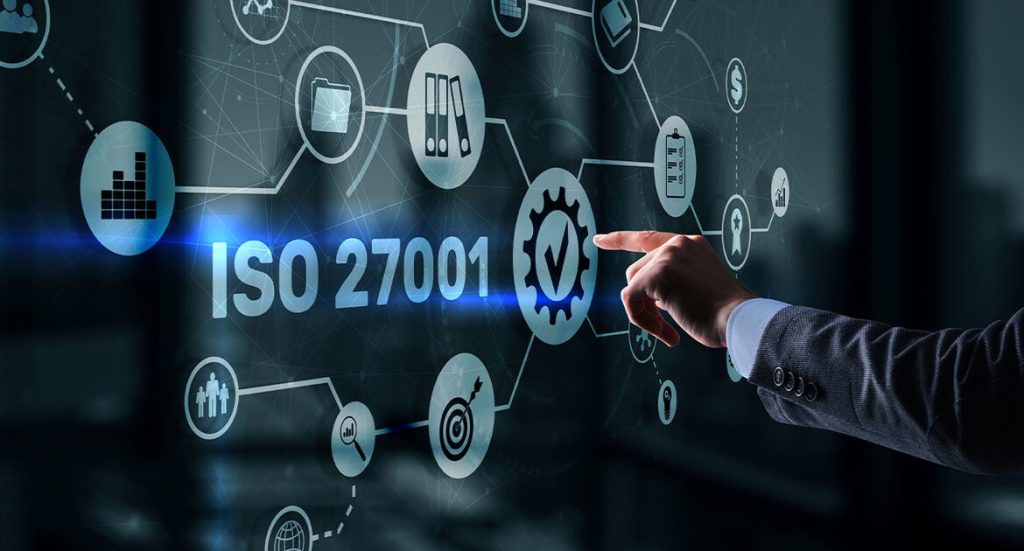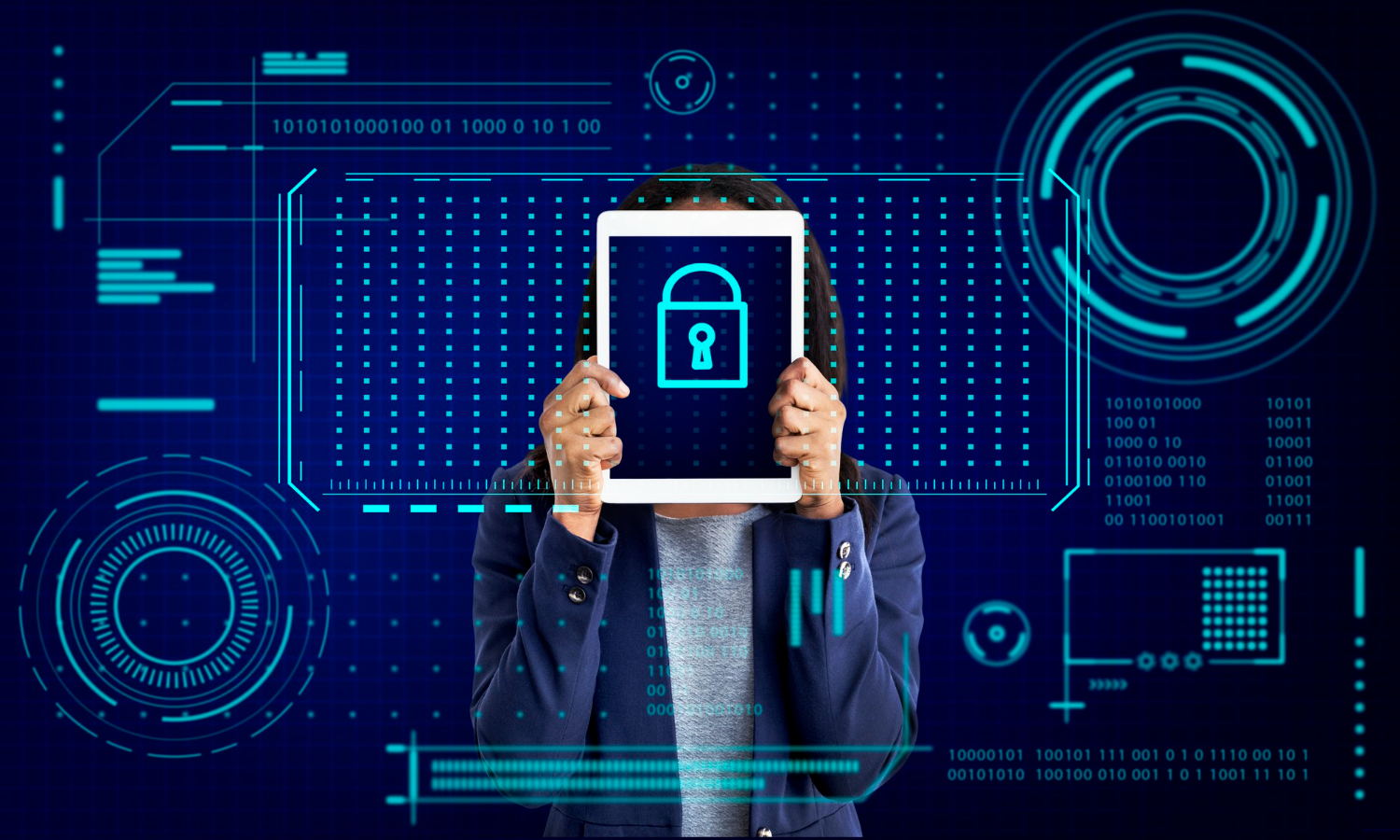Why has information security become a strategic priority?
In an era of accelerating digital transformation, information protection is no longer just a technical option, but has become strategic necessity For every organization seeking to grow with confidence, with the rise of cyberattacks, data leaks, and intensifying digital competition, organizations are now required to demonstrate their commitment to clear security standards. This is where security comes into play. ISO 27001 certification as a global framework for information security management.
To this end, organizations seek to adopt this international standard to ensure the protection of their information assets from risks and to build a safe and sustainable work environment. But is it easy to implement? What are its most prominent benefits and challenges? This is what we will explore together, step by step.
First: What is ISO 27001 certification?
ISO 27001 is An international standard approved by the International Organization for Standardization (ISO) in cooperation with the International Electrotechnical Commission (IEC), and aims to: Establish an effective Information Security Management System (ISMS) that ensures data is protected from unauthorized access, loss, or tampering.
In other words, this certification helps organizations to: Identify, analyze, and control security risks Through an integrated framework that combines policies, procedures, and technologies, in line with global best practices.
Through this system, the organization becomes able to protect its sensitive data – whether it is customer, employee, or partner data – in a systematic and continuous manner.
Second: Why does your organization need ISO 27001 certification?
Modern organizations strive to balance innovation and security. Therefore, obtaining ISO 27001 certification is not just a formality, but a A strategic move that enhances the confidence of customers, partners and investors.
Here are the main reasons why organizations should adopt this standard:
- Enhance trust and credibility:
When an organization adheres to a global standard, it sends a clear message that it respects data privacy and takes risk management seriously. - Compliance with regulations and legislation:
Digital governance requirements are growing in many countries, and ISO 27001 helps comply with laws such as GDPR or similar local laws. - Reducing operational risks:
Thanks to the standard’s risk management approach, an organization can anticipate security risks and take appropriate preventive measures before they occur. - Improving operational efficiency:
By unifying security policies and procedures, chaos is reduced and internal coordination is increased, which positively impacts overall performance. - Enhancing competitiveness:
In today’s market, customers prefer to deal with organizations that have trusted certifications in information security management.
Third: Challenges facing companies in implementing ISO 27001
Despite the great benefits, the path to certification is not without challenges.
It is important to note that these challenges do not mean difficulty in implementation as much as they mean the need for careful planning and effective administrative support.
1. Lack of awareness of information security culture
One of the biggest challenges is the lack of security awareness among employees. Even with robust systems, a simple human error can lead to a major breach. Therefore, it is essential to invest in Continuous training and awareness.
2. Resistance to internal change
Many organizations face employee resistance when implementing new policies, especially if they are perceived as complex or limit operational flexibility. Therefore, Manage change intelligently, engaging different teams from the early stages of implementation.
3. Initial costs
The implementation process may seem expensive at first in terms of consulting, training, and monitoring systems. But in the long run, it is A strategic investment that protects the organization from huge financial losses resulting from security incidents.
4. Continuous updating
Information security is not a one-time project, but rather an ongoing process. Therefore, organizations face a challenge in Continuously update policies and procedures to keep pace with technological changes.
5. Difficulty of measurement and verification
Sometimes, it is difficult to objectively measure the effectiveness of an information security management system, especially if there are no accurate assessment tools or qualified audit teams.
Fourth: Steps for implementing an information security management system according to ISO 27001
In order to get the most out of this standard, a structured approach must be followed that includes several interconnected stages:
1. Define the system scope
It is first necessary to define what data, processes, and locations the system will cover, to ensure focus and clarity during implementation.
2. Risk analysis and assessment
Risk assessment is the heart of the standard. It identifies potential vulnerabilities and threats, then estimates their impact and likelihood of occurrence.
3. Establish security policies and procedures.
After risk assessment, clear policies are formulated regarding access control, password management, backup, incident response, and more.
4. Implementation of technical and administrative controls
This phase includes implementing technical (such as encryption and firewalls) and administrative (such as authorization review and systems auditing) measures.
5. Awareness and training
All employees should be trained on the importance of protecting information and how to handle data securely.
6. Internal audit and periodic review
The system is regularly audited to ensure its efficiency and effectiveness, and necessary improvements are made on an ongoing basis.
Fifth: The long-term benefits of implementing ISO 27001 certification
When an organization adheres to this standard, the benefits extend to all its operational and strategic levels:
- Building a solid security culture:
Information protection becomes part of the corporate culture, not just a technical measure. - Increased customer and partner confidence:
Customers can rest assured that their data is managed within a secure and transparent system. - Improving internal governance:
ISO 27001 helps improve coordination between different departments and clarify responsibilities. - Reducing the costs of attacks:
Having an effective preventative system reduces the likelihood of security incidents and the costs of resolving them. - Business Sustainability:
With an integrated risk management system, an organization can continue operating even in emergency situations.
Sixth: How can your company successfully overcome challenges?
Despite the challenges, organizations can achieve success in implementing ISO 27001 by: Strategic partnership with a specialized consulting firm.
By taking a comprehensive approach that starts with assessing the current situation, continues through policy development, and ends with certification, tangible results can be achieved.
It is also important to adopt a continuous improvement approach, meaning that we do not simply obtain certification, but rather strive to constantly develop and expand the scope of the security system as the business environment evolves.
Seventh: The role of technology in enhancing information security management and adopting a continuous improvement approach.
Technology has become a key partner in the transformation journey towards a secure information environment.
By using systems such as intelligent monitoring, advanced access management, and data encryption, the organization can enhance compliance with the standard and achieve greater efficiency.
Moreover, the integration of technologies Artificial intelligence and predictive analytics help detect threats faster and make proactive decisions.
Eighth: Reins’ journey towards excellence in implementing ISO 27001
At Reins, we believe that information security is the cornerstone of digital trust.
Therefore, we work on Helping organizations effectively implement ISO 27001 standards through an integrated approach that combines:
- Specialized consulting to identify security gaps.
- Develop customized policies and procedures that fit the nature of each organization.
- Training and awareness programs ensure effective employee participation.
- Ongoing technical support to maintain the sustainability of the information security management system.
With Reins, your organization doesn’t just achieve certification, it builds a sustainable security ecosystem that supports your strategic goals.
Trust starts with security
In the end, it can be said that ISO 27001 Certification It’s no longer a luxury, it’s A competitive imperative in an era governed by data and trust.
By implementing this standard, your organization can secure its digital future, preserve its reputation, and gain the trust of its customers and partners.
💡 At Reins, we help your organization effectively implement ISO 27001 standards to ensure your data is protected and achieve sustainable digital trust.
Start your journey towards a safe environment today. Every step towards safety is a step towards growth.












